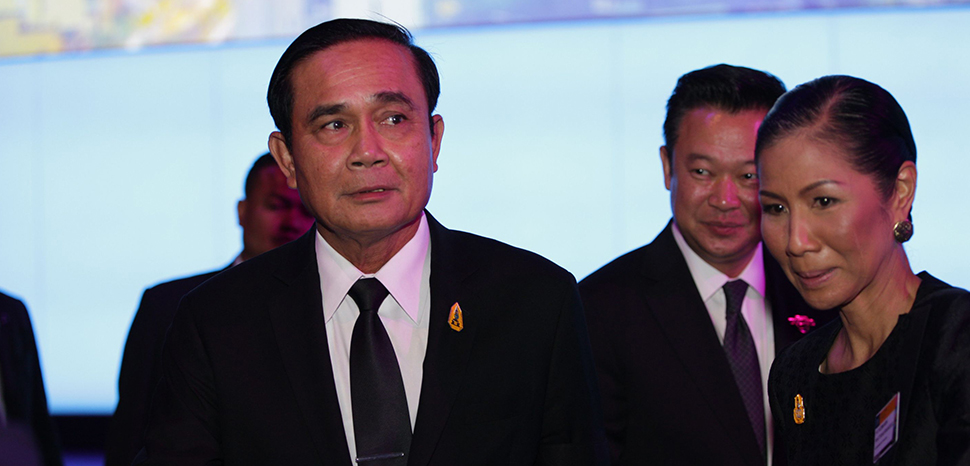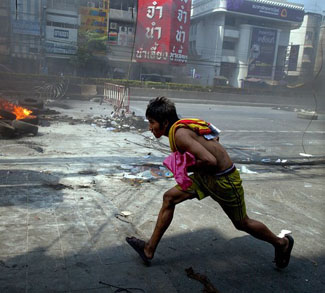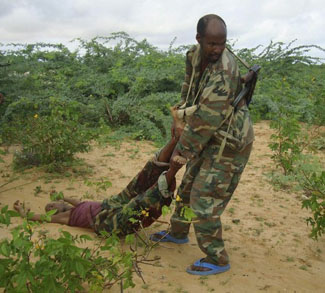When Thailand announced that it intended to host a meeting with Myanmar’s generals in order to “fully re-engage” the junta, it set off alarm bells among both pundits and ASEAN member states. First, the meeting violated a long-standing plan that dates back to April 2021 among member states, that Myanmar’s generals would be excluded from meetings. It also meant that for the second straight year, that an ASEAN member state would conduct a form of rogue or “cowboy” diplomacy, where engagement with the junta increased its legitimacy—and worse, led to a public relations spectacle, as was the case with Cambodia’s then-Special Envoy.
The meeting, which was held in Thailand over June 18 and 19, was at the invitation of the soon-to-be outgoing Foreign Minister Don Pramudwinai, who prefaced his invitation with a reference to the recent ASEAN Summit held in Indonesia this past May, where ASEAN leaders allegedly pledged to re-engage at the highest levels. The meetings attracted major criticism from pro-democracy stakeholders in Myanmar, and regional partners such as Singapore, who almost undiplomatically through its Foreign Minister Vivian Balakrishnan, said it “would be premature to re-engage with the junta at a summit level or even at a foreign minister level.”
Reeling after the failed talks, Thai Prime Minister Prayut Chan-o-cha noted that Thailand and Myanmar share more than 3,000 kilometers of land and sea borders, and that billions in oil and gas revenue between the two countries was at stake in the eventual outcome. The Thai Foreign Minister was even more bold, suggesting that “Thailand is the only country that wants to find a solution” and “none of the other ASEAN members care as much as us,” an obvious insult to the collective work of Indonesia, Malaysia and Singapore, who head ASEAN’s bloc of countries that have rejected direct engagement with Myanmar’s junta.
But Thailand cannot be so naive to think that other ASEAN countries do not understand Bangkok’s motivations. Thailand has accommodated Myanmar’s military long before the February 2021 coup, with military generals on both sides engaging in personal relationships, which date back to 2012, when Gen. Min Aung Hlaing was named the “adopted son” of Prem Tinsulanonda. In 2014, when Thai military coup leaders met with Gen. Min Aung Hliang, they received the support of the Myanmar military, said it was the “army’s duty to safeguard national security.”
With regard to its rogue diplomacy, Singapore had already warned Thailand about engaging with Myanmar in April, but it has been common knowledge that Thai elites, who have intimate business relationships with Myanmar’s state-owned enterprises, have worried that a more aggressive posture on Myanmar by the potential Move Forward Party-led government, who has promised a different approach, would threaten oil and gas business through PTT, Thailand’s state-owned oil and gas company. Annual revenues from PTT’s business provide more than $1.3 billion to Gen. Min Aung Hliang’s junta.
Second, Thailand has made a habit of looking the other way when Tatmadaw forces steamrolled innocent civilians or engaged in fighting along Thailand’s porous borders. And when one of Myanmar’s MiG-29 fighter jets last year crossed over into Thai airspace to attack a target on the other side of the border, Prayut suggested the incident was “unintentional” as they “made a wide turn before breaching into Thailand’s territory just a bit and we have dispatched our fighter jets in response which was in accord with international standards.” This was at odds with the outraged response of Thailand’s Royal Air Force, who formally protested the incident.
While it is true that Thailand has much to lose if the relationship with Myanmar’s junta goes sour after a new government takes office, there are positives associated with every negative. Renegotiated contracts or arrangements under a new government could deny critical funding to a brutal regime that thrives off of funding from regional governments, including China, Russia, and Thailand. A renewed Thailand that supports international sanctions and is willing to move into a position of denying the junta legitimacy might move ASEAN closer to progress on the Five Point Consensus.
Instead, Thailand’s outgoing leaders, most still responsible for a junta of their own, once again embarrassed themselves on the international stage. The recent meetings in Thailand, attended only by a few—China included—was more about salvaging its relationship with the junta ahead of the new government taking power. If Thailand wanted to be more transparent in its diplomacy, it could release the minutes from the closed-door meetings. But it won’t.
As the last nine years of the Prayut government have shown, when it comes to Myanmar, it prefers to operate in the dark.
The views expressed in this article belong to the authors alone and do not necessarily reflect those of Geopoliticalmonitor.com.




